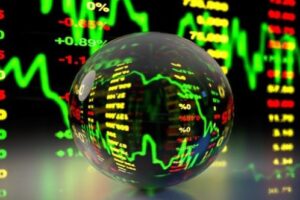We have previously written on the effects of the housing market and the economy but in this article, we explore the affects of a stock market on the economy. Even if individuals do not have share portfolios, a crash in the stock market may still affect them.
1.Lower stock prices means less earnings for businesses
Businesses will feel the impact of lowering stock market values. When individual‘s net wealth values decrease due to the lowering of value of the stock market, they could find that consumers may restrict their spending which can affect company profits. Businesses may find it hard to grow when the economy is slow or when there is low confidence. When businesses are unable to expand, this may affect their earning capacity. The stagnation of growth in companies will also mean they are unable to create more jobs which will also will affect the economy.
2.Lower superannuation balances
Superannuation assets in Australia totaled $2.9 trillion at the end of the June 2019 quarter. Although an individual may not be actively be participating in the stock market, it is very likely they hold a superannuation fund which has investments in the Australian stock market. This means the performance of the stock market will affect superannuation funds of many Australians. The degree of how this affects each individual depends on their time horizon. Younger super fund holders will have time to wait for the market to recover whereas older super fund owners do not. Hence when the share market crashes, retiree will feel the most pain as they will have less capital to live on.
3.Lowers confidence
A fall in the stock market may lower confidence of consumers. Stock markets are forward thinking so a crash may mean that investors can see a recession looming. If negative sentiment is present in the stock market, then this may have an impact on the spending habits of consumers. When individuals feel like their net wealth is decreasing, they may decide to decrease their spending. This could slow consumer spending and slow down the economy further. When consumers have low confidence of the future, they will be more likely to save their money rather than spend it on non-essential items such as new cars or new white goods.
4.Decrease of stock ownership
A large crash in the stock market may cause investors to move their money out of the stock market and into safer investments such as bonds. Investors wanting to preserve their capital may find the stock market too risky and move their funds to another safer asset class.
5.Stock market and interest rates
A stock market crash may encourage a cut in interest rates. If the central banks can see the economy weakening, they may decide to cut interest rates further to persuade companies to borrow more or for consumers to borrow money to then spend and stimulate the economy.
Lauren Hua is a private client adviser at Fairmont Equities.
An 8-week FREE TRIAL to The Dynamic Investor can be found HERE.
Would you like us to call you when we have a great idea? Check out our services.
Disclaimer: The information in this article is general advice only. Read our full disclaimer HERE.
Like this article? Share it now on Facebook and Twitter!

